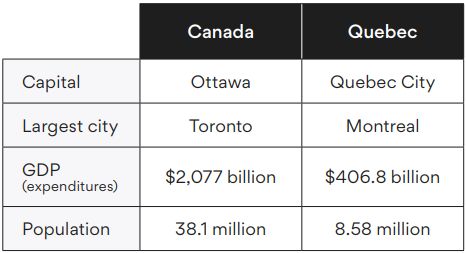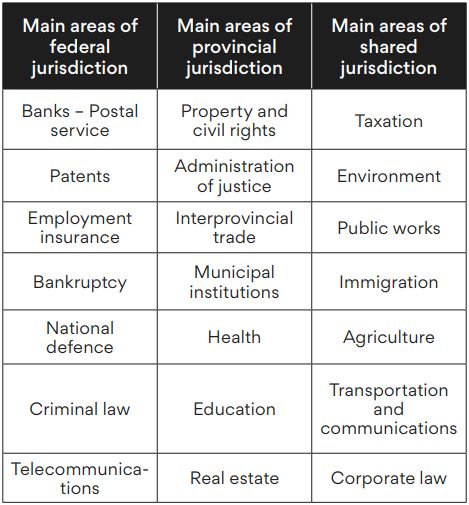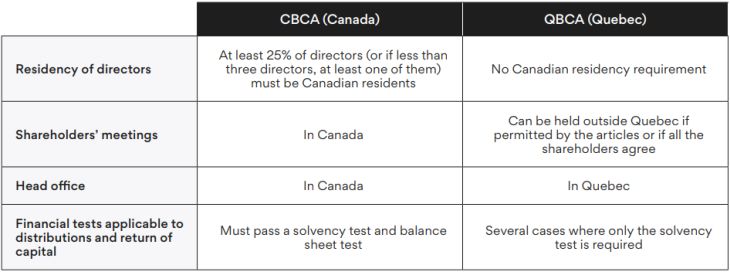Chapter 16 - Establishing a Business in Quebec: Practical Considerations
A. Introduction
Choice Destination for Business
Canada is a federation composed of 10 provinces and three territories. The capital is Ottawa, located in the province of Ontario. Quebec is one of the country's key provinces, along with Ontario, Alberta, and British Columbia.

Canada is a choice destination for businesses due to its stable government, independent judiciary, effective customs system, qualified and diverse labour force, and its high standard of living.
Legal and Constitutional Framework
Canada benefits from two legal traditions: civil law applies in the province of Quebec and common law applies at the federal level and in the other provinces and territories.
The Canadian Constitution divides legislative jurisdiction between the federal parliament and the provincial and territorial assemblies. Some jurisdictions are shared, such as taxation, the environment, and immigration. Legal persons in Canada are therefore subject to laws enacted by both the federal parliament and the competent provincial or territorial authority.

B. Creating a Business
Different Types of Enterprises
A business can be created using one of the different legal forms available, including a sole proprietorship, a partnership or a corporation (also called a company or legal person). The most common form used is a corporation.
Corporation
Depending on your specific circumstances, you can decide to incorporate under the provincial or federal system when creating a corporation in Canada.
In Quebec, corporations are created and governed by the Quebec Business Corporations Act (QBCA). Under the federal system, they are created and governed by the Canada Business Corporations Act (CBCA).
A corporation can do business anywhere in Canada, whether federally or provincially incorporated. However, the provincially incorporated company must register in each province where it does business pursuant to local rules and those governing the registration of corporations. Registration is a simple formality and does not cost much.
The two acts share several similarities.
For example, regardless of the system chosen, corporations can decide not to hold physical shareholders' or directors' meetings and a written resolution signed by all the shareholders or directors can replace a meeting. Governance rules, described more fully below, are also nearly identical between the different legislative systems. Shareholders of both types of corporations can also decide not to have their annual financial statements audited and the two systems have harmonized their rules on the protection of minority shareholders.
The table below illustrates some of the differences between the two systems. Note that the Quebec system applicable to the two first items is particularly appreciated by foreign investors.

Click here to continue reading . . .
The content of this article is intended to provide a general guide to the subject matter. Specialist advice should be sought about your specific circumstances.

